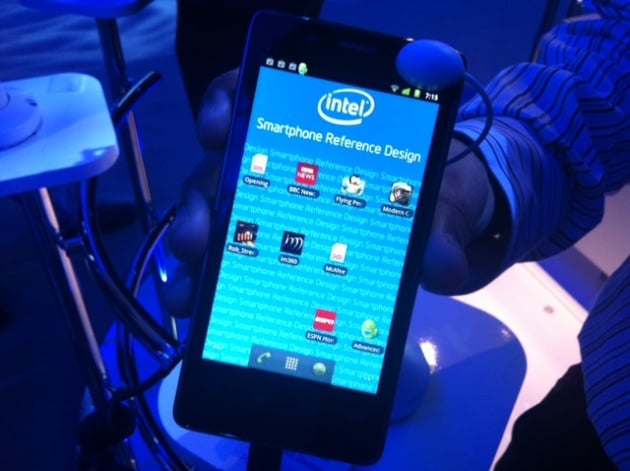Intel has started testing out the latest version of Google’s mobile OS, Android 4.1 Jelly Bean, on smartphones that use Intel’s Atom processor. This exciting news came from Intel’s vice president and general manager, Mike Bell.
Mike Bell announced at a recent developer conference that he is running Android 4.1 Jelly Bean on his own Intel Atom-based smartphone, and other employees at Intel are also testing it out on their Atom-based devices. This development marks a significant step forward in ensuring that Intel’s hardware is compatible with the latest advancements in mobile operating systems.

Compatibility and Performance
The testing of Android 4.1 Jelly Bean on Intel Atom processors is crucial for several reasons. Firstly, it ensures that devices powered by Intel’s Atom processors can take full advantage of the new features and improvements offered by Jelly Bean. These features include Project Butter, which makes the user interface smoother and more responsive, and Google Now, which provides personalized information and updates.
Moreover, the performance of Android 4.1 on Intel Atom processors is a key area of focus. Intel aims to optimize the OS to run efficiently on their hardware, ensuring that users experience fast and reliable performance. This is particularly important for maintaining competitiveness in the mobile market, where performance and user experience are critical factors.
Challenges and Deployment
He was asked when current smartphones would receive the update, like devices from ZTE and Lenovo, and said, “We can’t put it on the phones. We have to give it to the carriers to put on the phones and they go through acceptance testing.”
This statement highlights one of the significant challenges in the deployment of new OS versions: the role of carriers. Once Intel has optimized Android 4.1 for their Atom processors, the update must be handed over to the carriers. These carriers then conduct their own acceptance testing to ensure compatibility with their networks and services. This process can introduce delays, meaning that even though the OS is ready, it might take some time before it reaches end-users.
Additionally, the fragmentation of the Android ecosystem can pose challenges. Different manufacturers and carriers may have unique requirements and customizations, which can complicate the update process. Ensuring that the new OS version works seamlessly across various devices and configurations is a complex task that requires thorough testing and collaboration between Intel, device manufacturers, and carriers.
Despite these challenges, the successful testing of Android 4.1 Jelly Bean on Intel Atom devices is a promising development. It demonstrates Intel’s commitment to staying at the forefront of mobile technology and ensuring that their hardware remains compatible with the latest software advancements.
In conclusion, Intel’s efforts to test and optimize Android 4.1 Jelly Bean on their Atom processors are a significant step forward in the mobile technology landscape. By ensuring compatibility and performance, Intel is positioning itself as a key player in the mobile market. However, the deployment process involves multiple stakeholders, including carriers, which can introduce delays. Nevertheless, the successful testing of Jelly Bean on Intel Atom devices is a positive development that bodes well for the future of Intel-powered smartphones.
Source Phandroid
Latest Geeky Gadgets Deals
Disclosure: Some of our articles include affiliate links. If you buy something through one of these links, Geeky Gadgets may earn an affiliate commission. Learn about our Disclosure Policy.